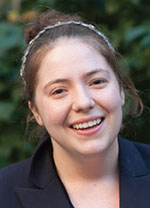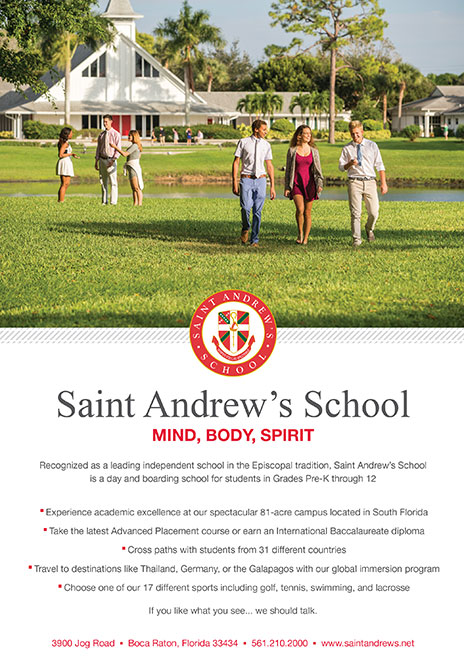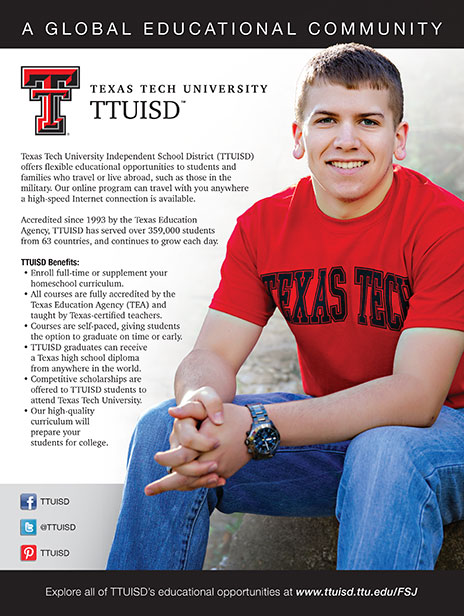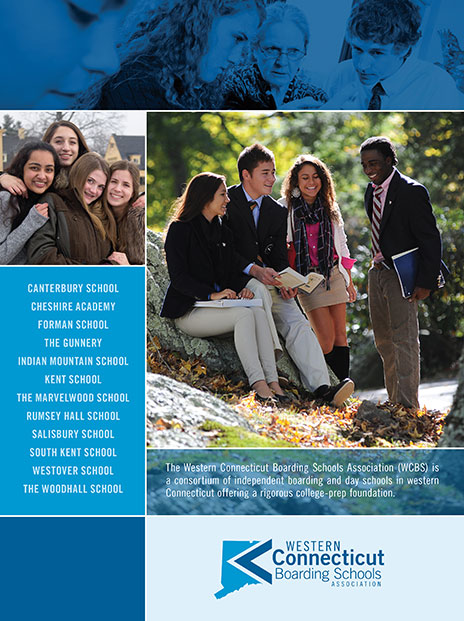The Do’s and Don’ts of the College Application Game
For young people, going to college involves making some of their first major life decisions. Here are some tips for Foreign Service high schoolers on how to get it right.
BY CLAIRE WEDDERIEN
The college application process is like the ultimate dating game. Every year a new batch of students puts themselves through the possibility of crushing rejection with hopes of finding acceptance with “the one.”
It’s an emotional and opaque process in which the student must also learn to live with the fact that the rules of the game are constantly changing. This year alone has seen the introduction of the new SAT, a rising interest in doing away with standardized test scores and even the creation of a new application process—the coalition application.
With the stakes so high, the Family Liaison Office interviewed two college counseling experts—Judy Bracken and Rebecca Grappo—in search of best practices for applying to college and a heads-up on the biggest mistakes Foreign Service kids make.
Judy Bracken has 17 years of experience in Falls Church and Fairfax County, Virginia, public schools as a college and career counselor, and currently works as a counselor for private clients. Rebecca Grappo is the founder of RNG International Consultants and specializes in helping parents make the right educational choices for their Third Culture Kids. She has also worked as a teacher internationally and domestically.
Both Grappo and Bracken are parents of Foreign Service kids, so they have been through the process themselves and understand the unique challenges FS kids face while attempting to untangle the college application process. Our discussion is the basis for the pointers to Foreign Service students heading into the college application process offered here.
Making Your College List
Don’ts
Creating a college list is stressful and demands a good deal of research and thought. To lessen the load, Judy Bracken has compiled the following list of factors that should be disregarded when making decisions.
She strongly suggests you do not pick a college “just because your parent(s) are alumni or because your boyfriend or girlfriend is attending.”
She also recommends that you do not eliminate a school because of the climate, the location or the “off the shelf” costs. Deciding what college to attend is probably the first truly adult decision you will make, and you have to look at the larger picture of setting yourself up for success.
Becky Grappo notes that she too often sees TCKs making the mistake of “following the crowd.” She sees students applying to the same 20 to 30 colleges as everyone in their high school.
According to The Washington Post, there are more than 5,000 post-secondary institutions (over 2,000 offering four-year degrees) in the United States. Schools offer a wide variety of programs and services, and some will work for the type of student you are and others will not.
Do’s
Choosing the right handful of schools is a mammoth task, but to narrow down your list, think about what Grappo terms your “unique needs.”
Bracken suggests you “reflect on where your strengths and weaknesses lie. And also on what truly interests you. It’s okay to have more than one interest.” Grappo also encourages students to be honest with themselves and their parents about their interests and abilities.
A good way to start asking the right questions is by visiting colleges. Bracken recommends students visit all types of colleges including big, small, private, public, in-state and out-of-state, with an open mind.
This can obviously be difficult for Foreign Service families posted overseas. But college is a huge investment, and finding a college that is a good fit can ultimately save you money and mental anguish.
By visiting a variety of colleges, you can form a clear picture of what you want and also conduct the ultimate test—whether you can picture yourself living a happy, productive life at a particular school.
If it’s not possible to visit a college you are interested in, try the following options: check whether the institution offers virtual tours, look for issues of the college newspaper online and search for student blogs that can help you form a realistic view of what that school has to offer.
Remember also to be realistic in terms of how likely you are to get into highly competitive schools. Even for straight “A” students with high standardized test scores, Ivy League universities and other top schools should always be considered “reach” schools because of the abundance of applications they receive.
Building Your Application
Don’ts
Don’t pad your resumé with activities and clubs in which you did not actively participate. Grappo says that “students should not think that they will be able to do it all, nor do colleges expect them to.” Students can and do get caught padding their resumés, and no institution is looking to invest in a dishonest prospect.
Your ideal college should be the school that wants you for what you can honestly offer their community. The strongest applications tell a consistent story about who you are as a student and a member of a community.
Do’s
Your options can be limited or may change depending on where your family is posted. But in Grappo’s experience, “most schools have a variety of extracurricular activities [that] include athletics, visual and performing arts and academic interests.” She suggests that you look at “depth, not breadth, when choosing how to spend [your] time.”
Colleges want to know what you will bring to the campus in terms of passions and gifts. Grappo urges you to remember that being overseas provides you with other very special opportunities outside of school. “Think about getting involved in the bigger community and making a difference there, too.”
If you must move during high school, Bracken reminds you, it’s important to line up your recommendations at the end of junior year. “If you are heading to or from post in your rising senior summer, make sure to have those recommendations in hand before you get on the plane.”
Expressing Interest
Don’ts
Don’t try to demand special attention or favors from the admissions office. Don’t ask about the status of your application before the announcement date, and do not expect someone to hold your hand through the process.
Recognize that your waiting period is the busiest time of year for admissions offices; rather than conveying enthusiasm, you are signaling a lack of independence and neediness with frequent queries.
This doesn’t mean that you shouldn’t ask questions and raise legitimate concerns. But do your research before contacting the college directly. At the very least, thoroughly consult the college website for answers first.
Bracken also reminds students to never “apply Early Decision unless you are 100-percent certain that it is your first-choice school.” Remember, applying ED means that you’re legally bound to attend that school if you are accepted.
You can only apply ED to one school, so choose wisely. If you do not have a clear preference, resist the temptation to use this tool, or you may find yourself trapped into attending a school that is not your best fit.
Do’s
Bracken does advocate for applying Early Action whenever possible. These applications are non-binding, and you can still give you a leg up in the numbers game. She also strongly recommends “making sure colleges know you have been on their campuses. Many schools keep a tally of the number of times you have demonstrated an interest in them.”
Schedule an interview with an admissions officer or alumni volunteer (often available in your home city—even overseas) and sign up for the college’s mailing list.
Bracken advises: “If you have a particular major in mind, it can be incredibly helpful to make an appointment to meet with a faculty member in that department when you visit, or via Skype if you are unable to visit. Be prepared to ask questions that cannot be found in existing school literature.”
Writing Your Essay
Don’ts
Do not write a college essay that anyone else could write. Grappo warns all FS kids to “avoid writing the banal ‘I am a citizen of the world because I am a TCK’ essay.” This sort of essay says little about who you are.
Think about what the college essay should accomplish: create a picture of who you are, as opposed to the empirical data (grade point average, test scores) you submit to the college.
Thousands of applicants can boast of spending part of their life overseas, but far fewer can articulate what they found meaningful or moving about the experience. Your college admissions office does not want to read an essay about your understanding of geopolitical power struggles; they want to know about you.
In the same vein, Grappo cautions against allowing parents to overedit your essay: “Nothing is a bigger turnoff than reading an essay that has lost its 17-year old voice and sounds like a middle-aged parent.”
Do’s
Write about a subject you are passionate about, a topic that can best highlight your writing abilities and personality. Ultimately, your essay will be judged on what you can reveal about yourself and how you articulate it.
“A good story is a great way to be remembered and shows the significance of having lived abroad,” Grappo reminds students. “I tell students not to focus so much on the ‘what’ of what happened but more on the ‘why’ it’s significant.”
Answer the question or prompt given to you instead of what you wished they had asked. Usually schools try to keep the questions open to allow students to focus on what is important to them; remember to relate your essay back to the original prompt.
Both Bracken and Grappo remind you to start your college essays early. You will likely be writing more than one, and the drafting process is crucial to submitting the best essay possible.
Improving Your Odds
Don’ts
Don’t assume that coming from a world-renowned high school will guarantee you a spot in an Ivy League university, even if you present an application with great extracurricular activities, high test scores and a strong grade point average. The odds will always be against you when applying to an exclusive school.
Bracken also cautions against relying on ratings like those compiled by U.S. News & World Report to select colleges. The factors that go into ranking colleges, such as acceptance rates, might not be relevant to the quality of the education you will receive.
Do’s
Bracken urges students to consider admission statistics relative to their geography when determining how likely they are to get into a school. For example, to get into the University of Virginia, a student from one of the northern counties will need a significantly higher GPA and test scores than an applicant from the southern counties.
Colleges tend to group applications based on geography. The advantage of applying to colleges from an overseas school is that, in Grappo’s words, “you can sometimes be a bigger fish in a smaller pond, making it easier for your application to stand out from a crowd; whereas it can be much harder to stand out in a competitive suburban school in the United States, especially if a lot of other students in that area are applying to the same colleges.”
Applying Early Action can be another way to get admissions officers to view your application in a smaller pool of applicants, as fewer students submit EA applications.
Another way to potentially improve your application, Bracken suggests, is to “take both the SAT (with the optional essay portion) and the ACT (with the optional writing test), since you may do significantly better on one or the other.”
Keep in mind, she notes, that for both tests, you have the option to choose the best test scores you wish to forward to colleges. There isn’t a downside to hedging your bets when it comes to standardized testing.
Affording College
Don’ts
Bracken recommends against discounting a school because of cost. At the same time, don’t dismiss the need to consider how you’re going to pay for college. When looking at scholarships, do not look only at opportunities that would cover your entire tuition.
Such large grants and scholarships tend to be the most competitive. You are much more likely to find several smaller grants that can help keep college costs down.
Do’s
Do talk to your parents about what you can expect in terms of financial help from your family. Bracken suggests that you have a serious college budget discussion with them at the beginning of junior year. These conversations can be awkward, but they are essential to enabling you to finish college without any surprises.
Also, start your scholarship search early. Bracken believes students should “pursue scholarship opportunities as early as freshman year. Early scholarship opportunities do exist.”
Use reputable online scholarship search engines to explore the wide variety of scholarship opportunities that exist, and remember to look at scholarships for specific colleges, as well.
Take the time to do your homework; scholarships are offered based on background, needs, merit and participation in an activity or other affiliation. You may be surprised at the number of scholarships for which you are qualified to apply.
You should also apply for scholarships that are offered specifically to FS dependents through the American Foreign Service Association, the Foreign Service Youth Foundation and the Associates of the American Foreign Service Worldwide.
Remember, too, it is essential that parents file all of the required financial assistance materials by the deadline posted for each college, including the Free Application for Federal Student Aid, or FAFSA.
No Guarantees
Unfortunately, there are no guarantees in love or in the college application process. You can do everything right, and you might still be rejected or waitlisted.
All you can do is submit your best application, the one that truly represents who you are and what you want out of the college experience. The truth is that whatever school you end up attending will have more to teach you than you can possibly learn.
Also, the odds that you will get into one of your chosen schools are in your favor—79 percent of colleges accept over half of the students that apply. The “right school” is the school that can best support you in creating the future you envision for yourself.
For more information and resources on the college application process, visit FLO’s College & Beyond Webpage: http://www.state.gov/m/dghr/flo/c21958.htm or email FLOAskEducation@state.gov.






